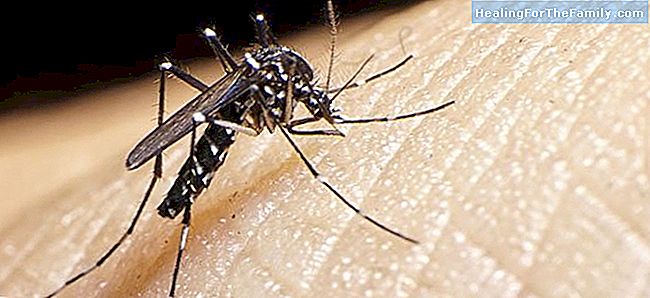Zika virus. We solve your doubts about zika virus
Like the best videos, the forest of Zika, located in Uganda, has gone viral in recent months. The fault lies not in its lush vegetation, nor in an unprecedented tourist campaign. The origin of his fame is that there, they say, was discovered for the first time an infection virtually unknown until to
Like the best videos, the forest of Zika, located in Uganda, has gone viral in recent months. The fault lies not in its lush vegetation, nor in an unprecedented tourist campaign. The origin of his fame is that there, they say, was discovered for the first time an infection virtually unknown until today. Hence, the virus that causes the disease is called the same as the forest: Zika.
Doubts about the Zika virus

1. How is the disease transmitted?
The guilt of everything is a mosquito, called Aedes aegypti, that in addition to transmitting the popular dengue fever, and the less famous Chikungunya fever, it turns out that it now also infects Zika. Of course, never a sting was so annoying. In addition, zika can also be transmitted from person to person, through contaminated blood, sexual fluids and perinatally (from the mother to the fetus). It is not transmitted through the air, nor through contact with the skin, nor through kissing or through breastfeeding. In Spain, there are no cases of disease transmission by this mosquito, although potentially no one is safe. Climate change favors the arrival of insects in our country that could transmit these and other infections. It's not about scare, it's about being prepared. 2. Is it a deadly disease?The infection is not so serious. Approximately 80% of infected people do not have any symptoms. When the disease develops, intermittent fever, headache, spots on the skin and in the eyes and pains in muscles and joints appear. In a period of 3-7 days the symptoms disappear without leaving sequels, although the pains in the joints can persist longer. Deadly cases have been described, but they are infrequent. In fact, the flu has higher mortality.
3. Is there a treatment?
How can I prevent Zika?There is no specific treatmentnor is there a vaccine.
The only thing we can do, like in the flu, is to treat the symptoms and wait. The best prevention at present, is to avoid the bite of the mosquito, following the following recommendations: - Use of repellents and mosquito nets. - Avoid exposing arms and legs, especially at dawn and dusk (if it is hot, linen is a good option).
- Avoid wearing clothing with bright colors for insects, mainly yellow and other intense colors (garish).
- Put the socks over the trousers and avoid wearing sandals or walking barefoot. En - In general, anything that comes to mind and makes 'life more difficult' for mosquitoes.
4. How does it affect pregnant women?
But if it is a generally mild infection, why is it so famous? Why so much alarm?
The main reason for concern with Zika is when it spreads to pregnant women, since the virus is transmitted through the placenta and causes problems in the fetus. Of them, the most serious is what is known as microcephaly, a defect in the development of the brain and skull that can cause psychomotor retardation and even death. An added difficulty is that 80% of the infected have no symptoms, so the bad news comes unexpectedly during the ultrasound controls of pregnancy. And
once microcephaly is established, there is no cure known at present
.
Obviously, this is generating an alarm at the global level, initially focused on the countries of Latin America where a greater number of cases have been registered so far, but extended to the rest of the world due to the risk of transmission between humans; a low risk, but possible. Precisely, in Latin America, most countries are recommending pregnant women to protect themselves against mosquito bites as much as possible, and even some countries are recommending to women that they do not become pregnant until the end of the year. Affectionate for insects, that is, winter. 5. Will Zika come to Spain? Por And finally, is there cause for alarm in Spain? Well, not now, but we should familiarize ourselves with general advice to avoid insect bites. Do not forget it, in Spain we already had malaria, although today some people find this strange or impossible. It is the same as malaria, and there are those who will know it because of 'tertian fever'. Between how easy it is today to move around the world, and climate change, call me crazy, but keep an eye on your closest mosquitoes and, above all, do not make life easier for them.












